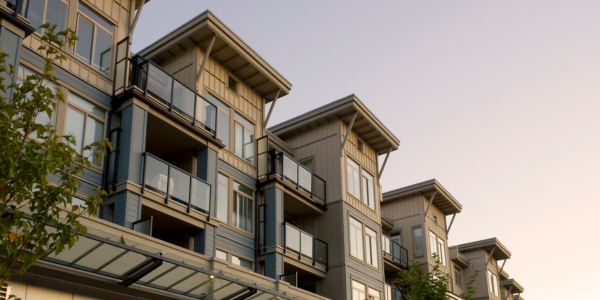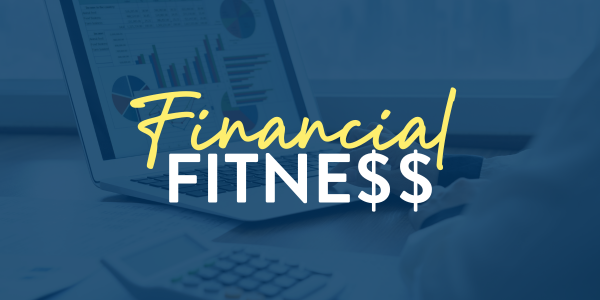
You’re drawn to condo living, and it’s easy to see why. Maybe you’re excited about living in that perfect downtown location, just steps from your favorite cafes and shops. Or perhaps you’re looking forward to saying goodbye to yard work and exterior maintenance. For many first-time buyers, condos offer an attractive path to homeownership, often at a lower price than single-family homes.
However, buying a condo is different from buying a house. You’re buying into a community with rules, financial obligations, and a management structure.

That’s why doing your homework matters. The right questions can help you uncover potential red flags, understand your actual costs, and ensure that you make a sound investment. Think of this guide as your road map to making an informed decision about condo ownership.
We’ve compiled the 15 most critical questions to ask when buying a condo. They are organized into three key areas: financial considerations, management and community health, and lifestyle factors. Let’s dive into what you need to know.
Understanding the Financial Picture
When you purchase a condo, your mortgage is only one part of the total financial considerations. Here are the crucial financial questions you must ask before signing on the dotted line.
1. What are the HOA fees, and what do they cover?
Your monthly HOA fees might surprise you. They can range from a few hundred to over a thousand dollars monthly. Before making an offer, ask exactly what these fees cover.
Typically, homeowners association (HOA) fees pay for maintenance of common areas, building insurance, amenities like fitness centers, utilities for shared spaces, and basic building maintenance. Some condo buildings even include utilities like water or heat in their monthly fee, while others don’t. Get a clear breakdown in writing of what’s covered and what isn’t so you can budget accurately for condo ownership.
2. How healthy is the reserve fund?
Consider the reserve fund as your condo building’s savings account for major repairs and replacements. A healthy reserve fund protects you from surprise special assessments down the road.
You’ll want to know what percentage of monthly fees goes into the reserve fund and when the last reserve study was completed. Ask if the fund is adequate to cover long-term maintenance and replacements, as well as what significant repairs or improvements are planned for the next 5 to 10 years. Your real estate agent can help you determine if the reserve fund is adequate for the building’s age and condition.
3. What’s the history of special assessments?
Special assessments are every condo owner’s least favorite surprise. They are extra charges beyond your monthly fee to cover major repairs or improvements. Understanding the building’s history of special assessments can reveal a lot about how well the condo board manages its finances.
Ask about any special assessments in the past five years and whether any are planned or under discussion. If there’s a current special assessment, make sure you know who’s responsible for paying it: the seller or you.
4. What insurance coverage do you need?
The community’s insurance coverage affects your safety net and personal insurance needs. The HOA’s master policy typically covers the building structure and common areas, but you’ll need a condo insurance policy to protect your personal property and interior fixtures.
Find out precisely what the master insurance policy covers and what you’re responsible for insuring inside your unit. In areas prone to natural disasters, also ask whether flood or earthquake insurance is included.
5. Is this a warrantable or non-warrantable condo?
This technical-sounding question directly affects your ability to get a conventional mortgage. A warrantable condo meets Fannie Mae and Freddie Mac’s lending guidelines, making financing easier. Requirements typically include limits on how many units a single entity can own, minimum owner-occupancy rates, and the financial stability of the condo association.
Non-warrantable condos might require special financing or a larger down payment, so it’s vital to know this status before making an offer. Your real estate agent or lender can help you determine whether a condo is warrantable.
Management and Community Health
Understanding who runs your condo building and how well they do it significantly impacts long-term satisfaction as a condo owner. Poor management can lead to headaches, while skilled leadership means a better community and protected property values.
6. What’s the owner vs. renter ratio?
The balance between owners and renters in your building matters more than you might think. A high percentage of owner-occupied units often means better property maintenance and a stronger sense of community.
Most mortgage lenders prefer to see at least 50% owner occupancy. Beyond the numbers, ask about rental trends in the building. Are more owners choosing to rent out their units? This could signal a shift in the community’s character or point to underlying issues.
7. Are there any pending legal issues?
Legal troubles can impact everything from your ability to get a mortgage to your future costs as a condo owner. Ask specifically about:
- Current or pending lawsuits involving the HOA
- Past legal issues and their resolutions
- Any disputes with developers, contractors, or service providers
Red flags include multiple lawsuits, ongoing construction defect claims, or frequent disputes between owners and the management company.
8. How is the HOA managed, and what’s their track record?
Determine whether the condo board works with a professional management company or self-manages the property. Ask about response times to maintenance requests and how they handle emergencies.
9. Can I review recent board meeting minutes?
While this may seem like an over-the-top request, board meeting minutes tell the real story of what’s happening in your potential new community. Look for:
- Recurring maintenance issues
- Debates about special assessments or fee increases
- Resident complaints and how they’re handled
- Plans for future improvements or repairs
Reading through a year’s worth of minutes can give you priceless insights into how well the community functions and what issues you might face as a condo owner.
10. What’s the history of fee increases?
Ask about the history of HOA fee increases over the past five years. Regular, modest increases are a good sign since they suggest the condo board proactively manages costs and maintains adequate reserves.
Be wary if fees have stayed unchanged for many years (which might indicate poor planning) or if there are frequent significant increases (which could signal financial troubles).
Lifestyle and Restrictions
Condo living means being part of a community with shared rules and spaces. You want to ensure the community’s lifestyle and rules align with your preferences and plans.
11. What are the key rules and restrictions?
Every condo building has its own set of rules and regulations that govern daily life. These touch every aspect of condo living, from the welcome mat at your door to how you can use common areas. Areas to review include:
- Pet policies (types, sizes, and number of pets allowed)
- Quiet hours and noise restrictions
- Decorating rules (including what you can place on your balcony or in windows)
- Guest policies and short-term rental restrictions
12. Can I rent out my unit if needed?
Even if you plan to live in your condo long term, circumstances change. Some buildings restrict the number of units that can be rented at any time, while others have minimum lease terms or require condo board approval of tenants.
If you need to relocate for work or want to keep your investment options open, ensure the rental policies won’t limit your flexibility.
13. What amenities are included, and how are they maintained?
While fitness centers and pools might catch your eye during the tour, dig deeper into how these amenities function. Ask about hours of operation, maintenance schedules, and any extra fees for using certain facilities.
Find out how often amenities are updated and whether there’s a history of extended closures for repairs. The value of these shared spaces depends entirely on how well they’re maintained and managed.
14. What are the parking arrangements?
Parking can make or break your condo experience, especially in urban areas. Learn whether parking spots are deeded with your unit, assigned, or first-come-first-served.
Ask about guest parking policies and whether you can rent extra spaces if you need them. Also, ask about storage for bikes or other vehicles. These details matter more than you might think in daily life.
15. What are my maintenance responsibilities vs. the HOA’s?
Understanding where your responsibilities end and the HOAs begin prevents future disputes. Most condos follow the “walls-in” principle, meaning you’re responsible for everything inside your unit, while the HOA handles external maintenance.
However, the specifics can vary significantly, particularly regarding windows, doors, HVAC systems, and plumbing. Get clear, written documentation of these responsibilities before you sign on the dotted line.
Making Your Final Decision
Buying a condo is an exciting step, whether you’re a first-time homebuyer or looking to simplify your lifestyle. While these 15 questions might seem like a lot to ask, each one helps you understand what condo ownership will mean for you.
Remember, a real estate agent experienced with condo sales can be a great ally. They can help you interpret HOA documents, spot potential red flags, and understand how a particular building compares with others in the area. If possible, try to connect with current residents, too. Their firsthand experiences offer direct insights into daily life in the building.
Have questions about financing your condo purchase? Our experienced Loan Advisors can help you understand your options and get started on the path to condo ownership. Whether you’re interested in conventional financing or need to explore other loan programs, we’re here to guide you through the mortgage process.








